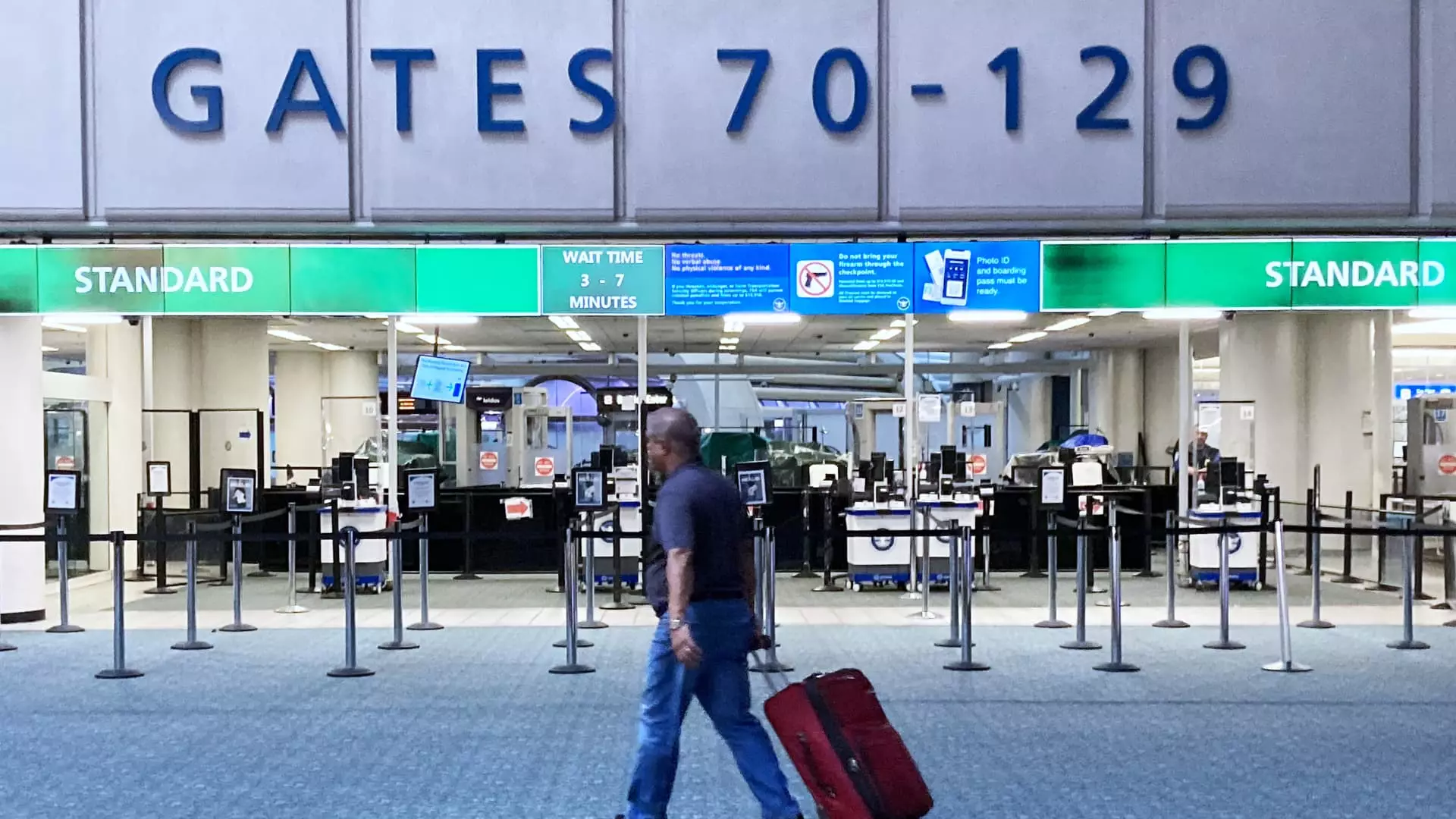The specter of a government shutdown is looming ominously as the holiday travel rush commences, heightening concerns across various sectors, particularly the travel industry. Recent legislative actions have led to a stalemate, with Congress unable to agree on a short-term funding bill that would avert a lapse in government operations. If lawmakers remain deadlocked, the shutdown could take effect as early as midnight on Saturday, bringing significant consequences for both federal employees and the economy.
Should a government shutdown occur, it would have dire implications for the federal workforce—a total of hundreds of thousands of government employees would face furloughs, significantly affecting their livelihoods during a critical time of year. Among those continuing to work, employees deemed “essential,” including air traffic controllers and TSA officers, would remain on duty but without the promise of pay. Such a situation raises questions about the morale and efficiency of these vital workers, who are already facing the stresses of high passenger volumes this holiday season.
The certain continuation of commercial flights does not mitigate the concerns arising from a lack of federal oversight during this busy travel time. The transportation sector is bracing itself, with the TSA projecting it will screen more than 40 million passengers during the holiday period, a staggering number that reflects the increasing demand for air travel. United Airlines is preparing to transport 9.9 million individuals during this timeframe, which marks a 12% increase compared to the previous year. However, the possibility of a government shutdown casts a shadow over these optimistic forecasts.
Economic Ramifications for the Travel Industry
The economic consequences of a government shutdown could be severe, especially for the travel and tourism industry, which the U.S. Travel Association estimates could lose $1 billion each week that the government remains inactive. Industry leaders have voiced their concerns that such a shutdown could complicate operations during one of the most profitable times of the year. As Geoff Freeman, President of the U.S. Travel Association, articulated, the disruption caused by forcing vital TSA and air traffic personnel to work without compensation is likely to deter long-term prospects for travel.
The last government shutdown, which lasted for over a month from late 2018 into early 2019, caused significant disruptions, including chaos in the air traffic system, primarily due to callouts from air traffic controllers. The cumulative effects of congestion on the U.S. East Coast have left a lasting impression on airline executives, as they consider the implications of a short-staffed workforce in an already strained aviation system.
With the impending change in administration, aviation leaders are calling for urgent reforms aimed at the modernization and efficiency of air traffic control systems. Alleviating the burdens faced by air traffic controllers and ensuring a sufficient workforce are priorities outlined by Delta Air Lines CEO Ed Bastian, emphasizing the need for the incoming FAA administrator to focus on hiring additional personnel and enhancing technology.
In the face of both political contention and the logistical challenges posed by holiday travel, it is imperative for Congress to negotiate viable solutions that prioritize not only the smooth functioning of government operations but also the economic health of critical sectors like transportation. Failing to find common ground risks more than just political fallout; it jeopardizes the livelihoods of countless workers and the trust of the traveling public.
The convergence of holiday travel demands and governmental inertia presents a complex landscape for all stakeholders involved. As tensions mount and deadlines loom, it remains crucial for leaders in Washington to reflect on the broader impacts of their decisions and formulate plans that safeguard both the public and the economy during this pivotal time. Whether these negotiations will succeed in averting a shutdown remains a pressing question as the clock ticks down on potential resolutions.

